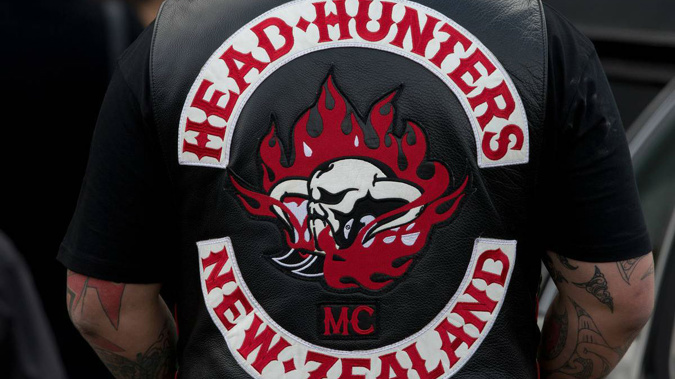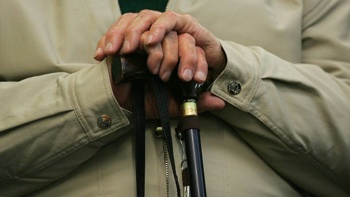
One of the most senior Head Hunters gang members has successfully appealed the length of his sentence after he was jailed on a raft of methamphetamine charges.
In April last year, high-profile gangster William "Bird" Hines was jailed for 18 years and six months with a minimum non-parole period of eight years and four months.
At sentencing in the High Court at Auckland, Justice Jonathan Downs said Hines' ill health was taken into account or he may have faced a heftier term.
The court heard Hines has Type 2 diabetes, heart disease and end-stage renal failure.
His five-week trial was interrupted every second day for his dialysis treatment.
Hines was one of nine people convicted in relation to serious methamphetamine-related offences.
Justice Downs sentenced the offenders on the basis that each of them had, in various ways, been responsible for manufacturing approximately one kilogram of methamphetamine in 2015.
/arc-anglerfish-syd-prod-nzme.s3.amazonaws.com/public/R5MENLX5EREDPP52G6YLRCGEVM.jpg)
Hines was the perceived architect of the criminal group.
Justice Downs set a starting point of 16 years in jail for Hines and uplifted that by four years to reflect factors including his "extensive" criminal history, which included previous offences against the Misuse of Drugs Act 1975.
He then reduced the sentence by 18 months on account of Hines' medical conditions.
Justice Downs said had Hines been healthy, he would have imposed a minimum non-parole period of 55 per cent of the total sentence.
However, he set the period at eight years and four months.
In appealing his convictions Hines claimed Justice Downs "failed to sufficiently stress the need for the jury to resist speculation" in relation to circumstantial evidence and did not address or direct the jury as to "how they should approach a case where more than one inference is reasonably available on the evidence".
He also claimed Justice Downs direction against prejudice was "insufficiently
strong" given the central focus of the Crown case on the fact that Hines was a gang member and the president of the Head Hunters.
After hearing the appeal, Justice Rebecca Ellis rejected Hines' bid to have his convictions overturned.
"None of the grounds of appeal against conviction disclose any error on the part
of the Judge," she said in a Court of Appeal decision released today.
"The conviction appeal must be dismissed."
In regards to his sentence, Hines appealed on the basis that the starting point was too high due to the fact he had miscalculated the amount of methamphetamine produced by the gangsters.
Hines said Justice Downs also "gave insufficient consideration to and discount" for his medical condition and in particular "the degree of extra suffering that the condition would result in from a sentence of imprisonment".
"The judge failed to give consideration to section 8 of the New Zealand Bill of Rights Act 1990 (NZBORA) which guarantees the right to life," Hines' appeal stated.
Justice Ellis agreed that Hines should have been granted more of a discount for his ill health.
She said if the current sentence and minimum non-parole period stood, Hines would be in his early 70s before he was eligible for release.
She said he had already been on dialysis for six years and referred to a doctor's report prepared for the Court of Appeal outlining survival rates after five years for patients like Hines.
"Relatedly, we also accept that the possibility of a transplant (were a kidney to become available) while he remains in prison is remote.
"The imposition of an MPI therefore has a potentially direct effect on Mr Hines' life expectancy.
"On the basis of the (somewhat limited) medical information before us it seems that the chances of him completing the minimum period seem far from good.
"And while, on the evidence, it seems Mr Hines' medical conditions are managed adequately in prison, it cannot be said that the care he receives is equivalent to that which he received in the community; the reduced frequency and duration of his dialysis treatment speaks for itself.
"So do the (at best) very limited transplant opportunities."
Justice Ellis quashed the sentence of 18 years and six months' imprisonment and replaced it with a sentence of 17 years.
She also quashed the minimum period of imprisonment of eight years and four months.
Take your Radio, Podcasts and Music with you









